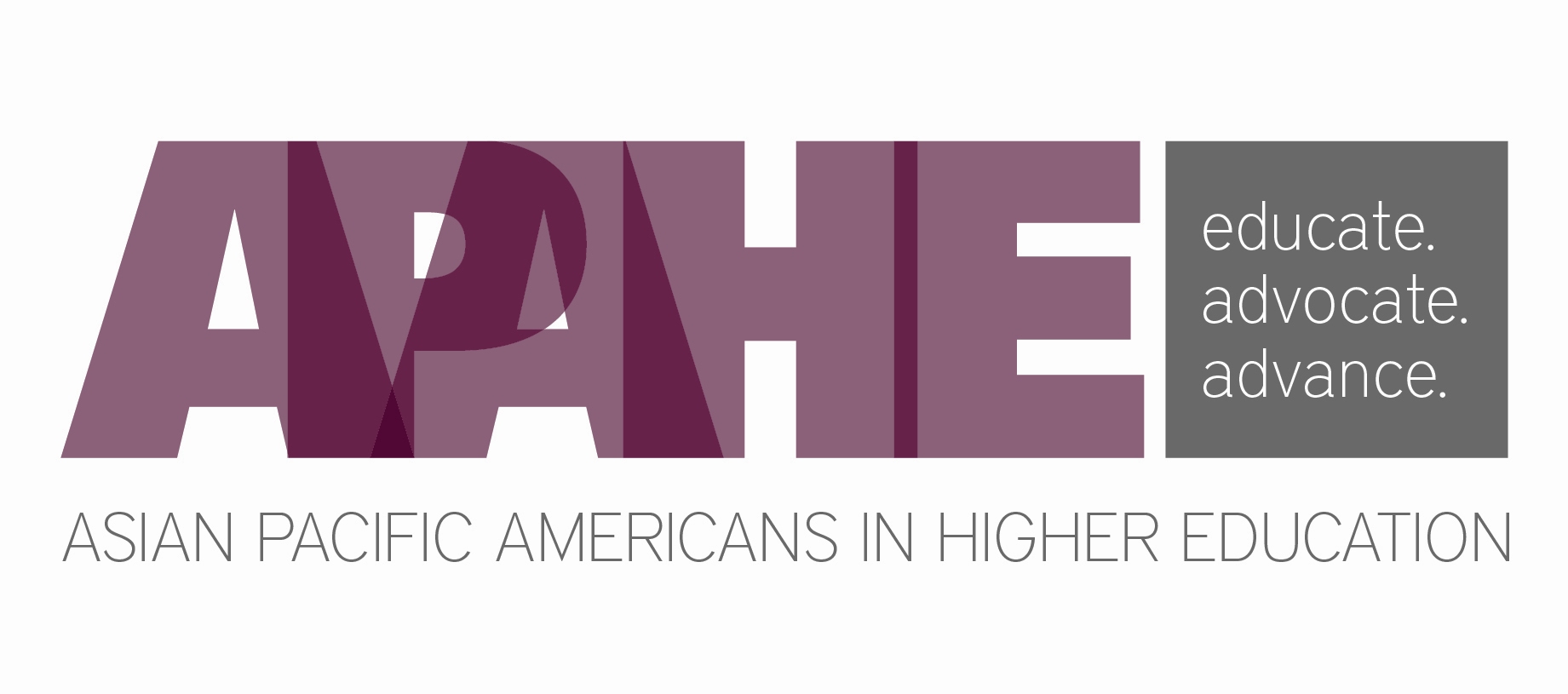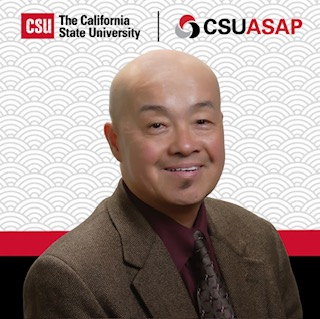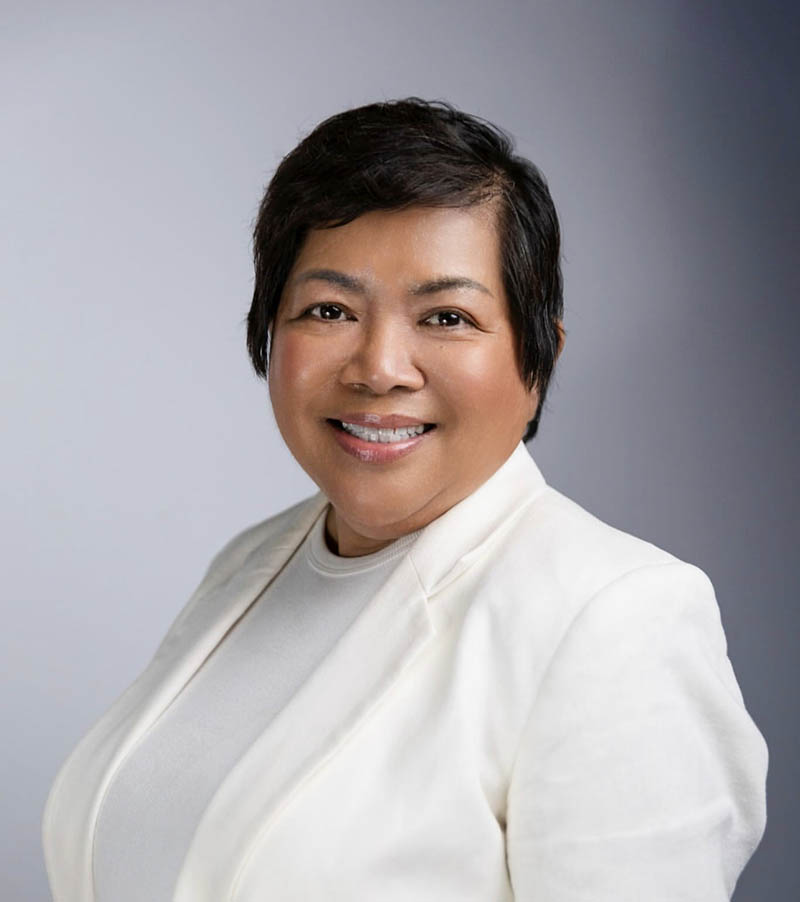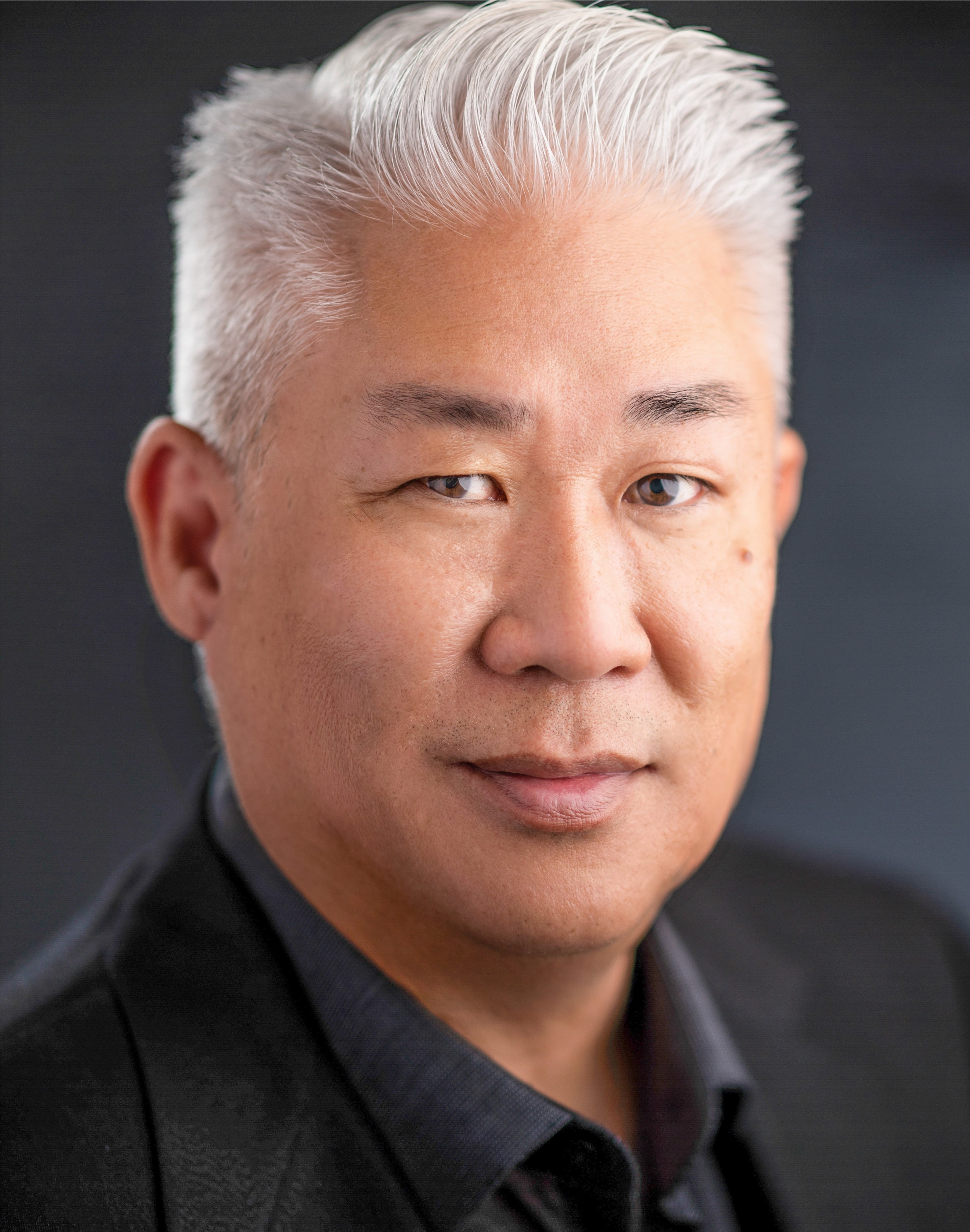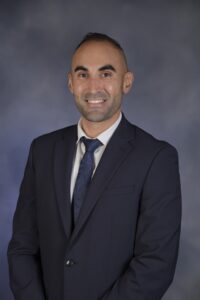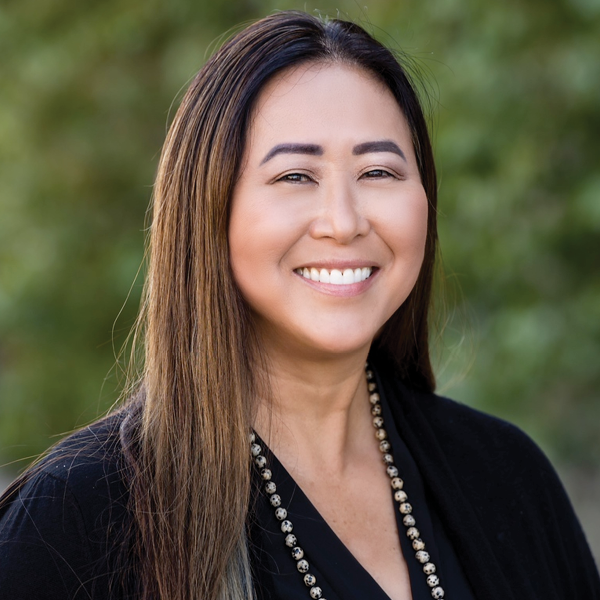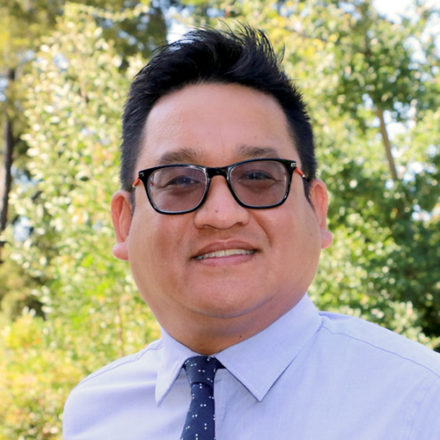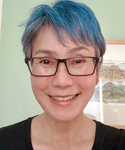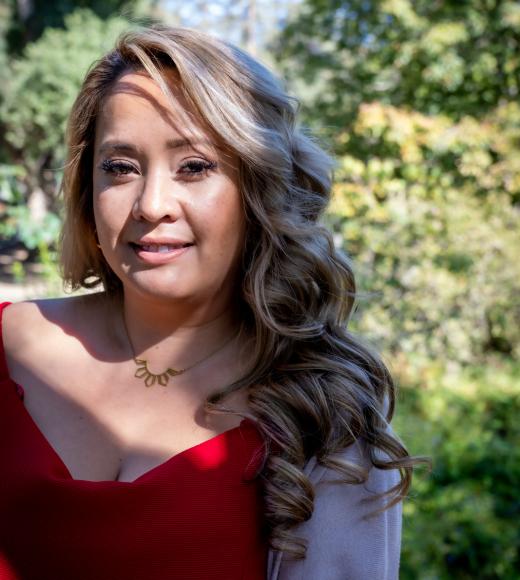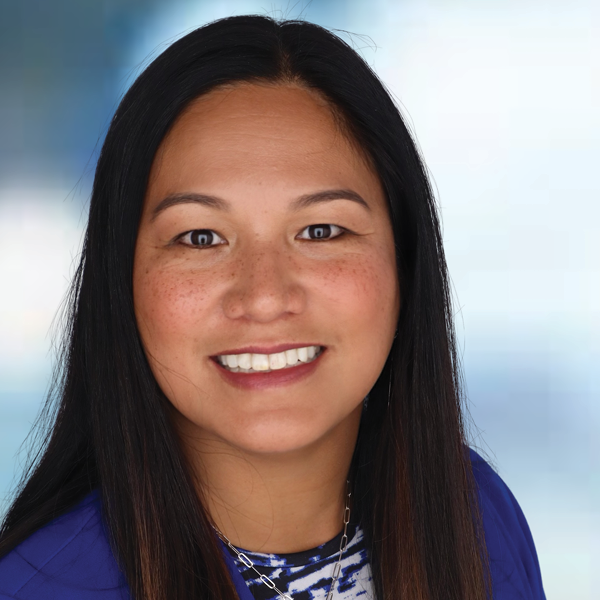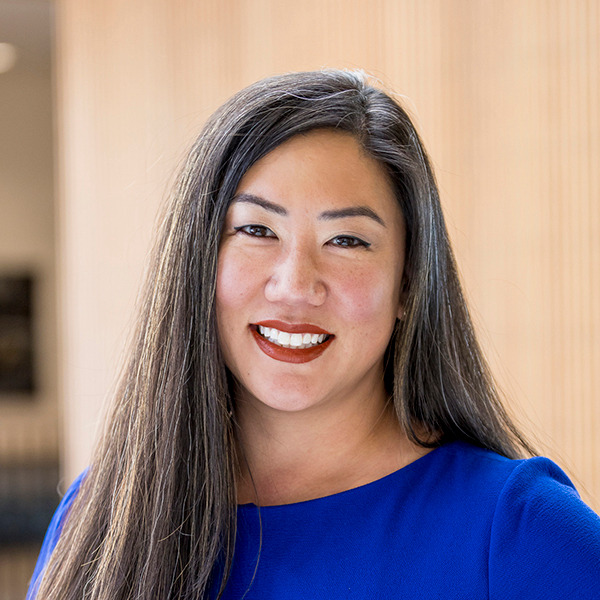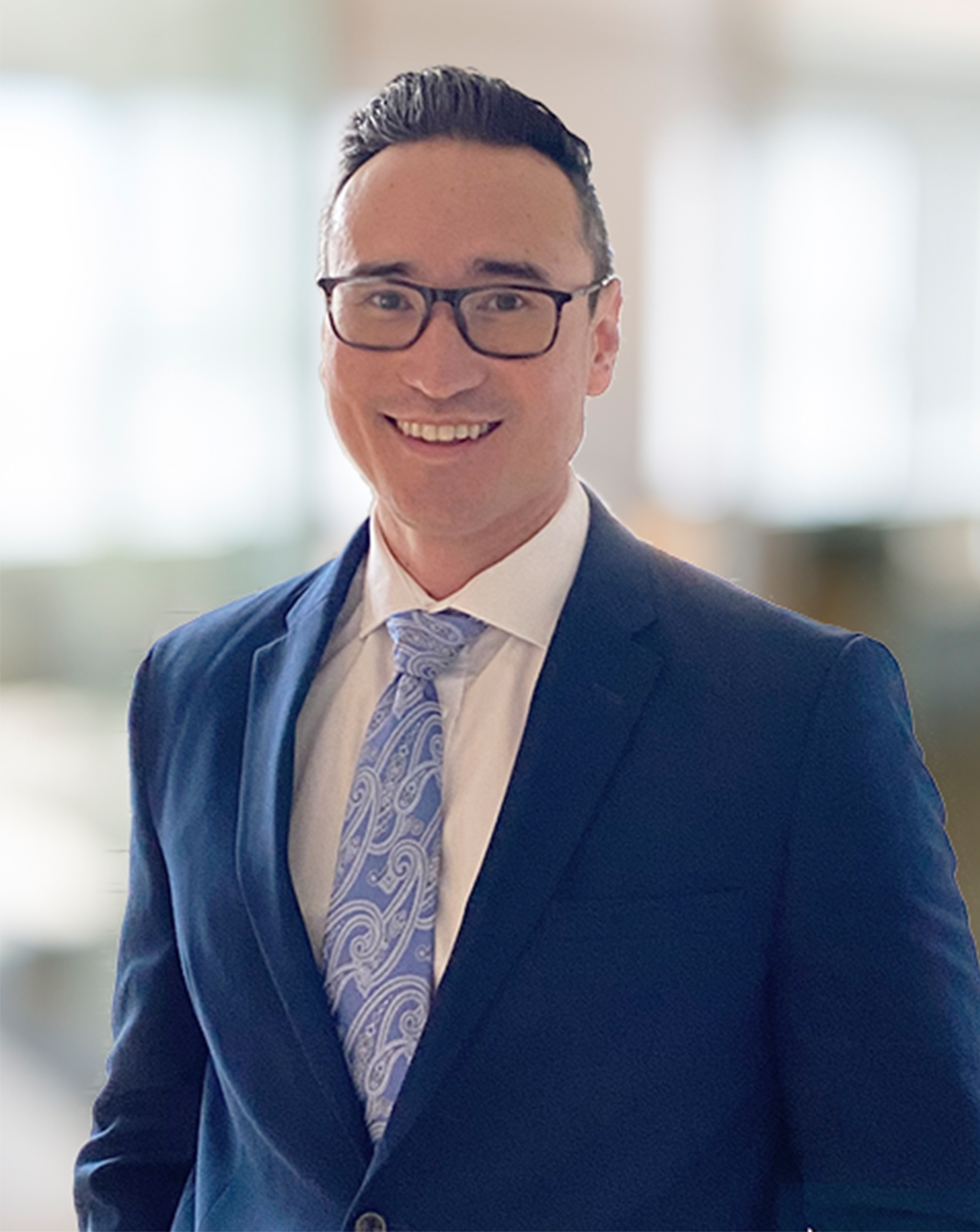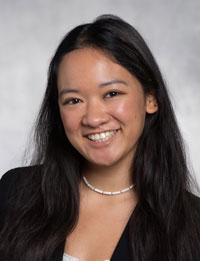Morning Sessions
- CSU ASAP Pre-Conference Session: Dialogues and Strategies
- *AANAPISI National In-Person Check-in / Community Building
- When to Stay, and When to Go – Keeping it Real
- Engaging Pasifika Identities Through Moananuiākea: Once Ocean, One People
- Rooted in Healing: A Forest Therapy Walk for AANHPI Mental Health
- Rooted & Becoming: Healing, Storytelling, and Leadership for 1st Gen
- Welcome to the Moment: Finding Power and purpose at APAHE
- *Keep Advancing…LEAP Advance Alumni Session
- Finding Contextual Courage as Leaders: Personal Gifts to Collective Action
- Career GPS: Navigating Your Next Steps
Afternoon Sessions
- *Employment Development Workshop (The Coalition Convening)
- Future Steps, Current Stories: Advancing Asian Pacific American Leadership
- Weaving Wellness & Eco-Therapy for Collective Mental Health in Higher Ed
- Learning About Gender Beyond Binary Trans in-QUERRy + (LGBT+)
- Building Together: Strengthening the CCC AANHPI SAP Community
- “Yes…And” to Playing, Failing Forward & Unscripted Collective Storytelling
- Rooted in Resilience: Hmong Legacies & Leadership in Higher Education
- Cultivating Courage & Resilience: Best Practices for AANHPI Communities
- Pop Culture and the Navigation of Societal Asian American Roles at Work
- The Courage to Pitch Change
- The Orange County Cultural Tour
Morning Pre-Conference Sessions
Sunday, April 12, 2026 from 9am–12pm
1. CSU ASAP Pre-Conference Session: Dialogues and Strategies
The first-ever California State University Asian American, Native Hawaiian, and Pacific Islander Student Achievement Program (CSU ASAP) pre-conference at APAHE is especially timely given recent reductions to federal Minority Serving Institution (MSI) funding.
Authorized by California Education Code Section 89297.1 in 2022, CSU ASAP provides $8 million in ongoing funding to support culturally responsive services that advance educational success for low-income, underserved, and first-generation AANHPI students and other underrepresented populations. To date, nearly $13 million has been distributed across all CSU campuses to fulfill this legislative mandate.
This pre-conference will:
- Provide historical context for CSU ASAP’s creation amid federal MSI funding cuts;
- Offer space for participants to discuss challenges and opportunities in program implementation; and
- Share CSU ASAP’s long-term strategic plan and invite participant feedback.
Presenters
Timothy P. Fong, Ph.D.
Inaugural Executive Director
Bio
Dr. Timothy P. Fong is the Inaugural Executive Director (ED) of the California State University Asian American, Native Hawaiian, and Pacific Islander Student Achievement Program (CSU ASAP). The ED is responsible for all aspects of establishing and leading a central office toadminister the CSU ASAP. The Central Office operates on behalf of the CSU Chancellor’s Office (CO) to allocate programmatic funding, support program development and training, and build a network across the CSU system in support of AANHPI student success. The office is housed at the Sacramento State campus within the Division of Inclusive Excellence.
James Fabionar, Ph.D.
Director of Professional Learning & Communications
Bio
Dr. James Fabionar leads CSU ASAP’s professional learning programming and coordinates its media and communications. Prior to joining the CSU ASAP office staff, Dr. Fabionar was Associate Professor and Associate Chair of the Department of Learning and Teaching at the University of San Diego. At USD, he lead the Ph.D. program in Education for Social Justice and multiple and single-subject teaching credential programs.
Frances L. Palu, MA
Director of Operations
Bio
A dedicated and impact-driven leader, Frances proudly identifies as a Samoan and Tongan woman and is a passionate advocate for her Polynesian community, actively working to uplift and empower Pacific Islanders in higher education, leadership, and community development. She brings over nine years of administrative management experience, excelling in budget oversight, human resources, and comprehensive program management. As a charismatic U.S. Navy veteran, Frances is recognized for strong leadership, commitment to team development, and a passion for continuous learning. Her expertise spans strategic planning, financial analysis, organizational development, and diversity and equity initiatives.
Mary Ann Wong, MA
Research Analyst
Bio
Mary Ann is an accomplished professional with over two decades of expertise in research,evaluation, assessment, and leadership in both academic and social service settings. She holds an MA in Organizational Leadership from Chapman University and dual bachelor’s degrees in Psychology and Physical Education with a minor in Biological Sciences from California State University, Sacramento. Her robust academic foundation is complemented by associate degrees in General Science, Math & Physical Science, and Liberal Arts from American River College.
2. *AANAPISI National In-Person Check-in / Community Building
*Must be a currently funded AANAPISI Director or PI
AANAPISIs are at the forefront, especially as we have worked to build a space for our students to thrive on our campuses across the United States and the Pacific. On September 10, 2025, the U.S. Department of Education abruptly reallocated AANAPISI funds, forcing many campuses to suspend essential student programs, cancel ongoing initiatives, and lay off staff. On September 23rd, the APAHE/AANAPISI Planning Committee organized a virtual national convening to check-in and be in community with the funded AANAPISI campuses nationwide. This ‘In-Person’ session is a follow-up discussion to continue the initial conversation regarding campus updates, contingency plans, and advocacy efforts.
Presenters
Dr. Patricia Neilson
Director of AANAPISI Initiatives, Founding AANAPISI Director
Bio
Dr. Patricia Akemi Neilson has extensive experience serving as an independent external evaluator grant implementation consultant/coach for MSI grant projects, primarily AANAPISI grants including funded grants in California, Washington State, Oregon, Virginia, New Jersey, and Massachusetts since 2018. Dr. Neilson has also consulted with AANAPISI eligible institutions with the development of their grant proposals. She has served as the Founding Director of three AANAPISI Part A and F grants and been responsible for projects totaling over $5.15 million to narrow the achievement gap for targeted low-income, underserved populations.
Dr. Neilson provides AANAPISI leadership in higher education partnerships, including the White House initiative on AAPI Affairs, the US Department of Education, the AANAPISI consultant to Asian Pacific Islander American Scholars (APIA Scholars), and for eleven years has facilitated the APAHE/AANAPISI Pre-Conference Institute, an annual convening of AANAPISI stakeholders. She is an emeritus member of the Asian Pacific Americans in Higher Education (APAHE) Board of Directors, and currently serves as the Director of AANAPISI Initiatives.
Prior to her consulting focus, in addition to being the Founding Director of the AANAPISI grants at the University of Massachusetts Boston, she was the Director of the Center for Collaborative Leadership for six years, an executive leadership development program to develop a new generation of leaders for the Boston region, housed in the College of Management. Prior to her 15-year tenure at UMB, she served at North Shore Community College for 18 years, concluding her service at that institution as an Academic Dean.
Dr. Neilson has an EdD in Leadership in Education, University of Massachusetts Boston, Master’s in Public Health, University of Hawaii Manoa, and a Bachelor’s of Science in Psychology, Seattle University. She has a Connective Leadership Institute (executive coaching) certification and a Certificate of completion from Harvard University in the Art and Practice of Leadership.
Dr. Aida Cuenza-Uvas
Director, ARISE Program
Bio
Dr. Aida Cuenza-Uvas is a first-generation college student who comes from an immigrant family. She was born and raised on Guam. She graduated from Mt. SAC with an A.A. Degree in Liberal Arts before transferring to Cal Poly Pomona where she earned her Bachelor of Science degree in Urban and Regional Planning. She has a Master of Science degree in Counseling from Long Beach State University. In 2020, Dr. Cuenza-Uvas earned her doctorate in Educational Leadership from California State University Fullerton (CSUF). Her dissertation, “Voices from the Pacific: Narratives of Pacific Islander Students Attending a California Community College” earned CSUF’s 2020 Outstanding Scholarly and Creative Activity Award. She has co-authored two scholarly journals, one in New Directions for Student Leadership and another in AAPI Nexus.
Dr. Phitsamay Uy
Associate Professor, Co-PI AANAPISI Program
Bio
Phitsamay Sychitkokhong Uy is an Associate Professor in the School of Education’s Leadership in Schooling Program and co-director of the Center for Asian American Studies at the University of Massachusetts-Lowell. Her research focuses on immigrant and refugee populations, Southeast Asian educational experiences, and family and community engagement. With over 30 years in the K-21 education field, she has taught as an elementary teacher, literacy specialist, Asian American studies instructor, and teacher education professor. As an educational consultant for school districts and nonprofit organizations, she has provided workshops on equity training, culturally responsive strategies to engage immigrant and refugee families, and professional development workshops on intercultural competence for teachers, administrators, and staff. She is a member of the University of Michigan’s National Center for Institutional Diversity (NCID) Scholars Network. In 2024, she received the Manning Prize for Teaching Excellence from the University of Massachusetts-Lowell.
She has published in peer-reviewed journals such as Teacher College Press, Race, Ethnicity, and Education, and Journal of College Student Development. Dr. Uy and her colleagues recently published a new book, Research and Reflection on Southeast Asian American Educational Advancement, with Purdue University Press. Her work has been featured in mainstream press outlets such as Public Radio International, USA Today, the Boston Globe, and the LA Times.
Dr. Uy has worked on a total of 23 community-engaged grants, 12 grants as the Principal Investigator (PI), nine as co-Principal Investigator (co-PI), and two as Key Personnel, totaling $11 million. She is a co-principal investigator on two Asian American Native American Pacific Islander Serving Institutions (AANAPISI) grants. She has published two articles on the influential role of AANAPISIs in supporting Southeast Asian student graduation and retention.
3. When to Stay, and When to Go – Keeping it Real
Join us for an interactive, brutally honest and heart-centered conversation about one of the most challenging decisions facing higher education professionals today now more than ever: when to stay and when to go.
In this interactive 3-hour session, a panel of presenters invite you to explore the realities of navigating an increasingly complex political and institutional landscape. So much of the “when to stay, when to go” decision depends on factors we can’t always control like organizational shifts, leadership changes, politics, timing, but what we can explore are the personal anchors that help guide those choices.
Presenters
Wyman Fong, moderator
Emeritus Board Member, Asian Pacific Americans in Higher Education & Vice Chancellor of Human Resources Emeritus | Chabot-Las Positas Community College District
Bio
Wyman Fong is designated as Vice Chancellor of Human Resources Emeritus for the Chabot-Las Positas Community College District – given his early retirement on December 31, 2024. Prior to his emeritus status, Wyman was the longest serving vice chancellor of human resources in the California Community College system.
Selected highlights in addition to serving on the APAHE Board, include:
Wyman was elected as President for the Association of California Community College Administrators (ACCCA). ACCCA is an organization for administrators of California’s 116 community college campuses, serving 2.1 million students.
Wyman was also elected and served as President for the Association of Chief Human Resource Officers (ACHRO).
In addition to board membership with APAHE, Wyman was also a member of the Board of Directors for the National Asian/Pacific Islander Council and concluded his service in 2024.
Amrik Johal, Ph.D., panelist
Dean of Student Affairs | Palomar College
Bio
Dr. Amrik Johal serves as Dean of Student Life & Leadership at Palomar College. He earned his bachelor’s degree from UCLA, master’s degrees from Columbia University and UCLA, and Ph.D. from UCLA in Higher Education and Organizational Change.
Dr. Johal, as a first-generation college graduate, is passionate about supporting students from communities historically underrepresented in higher education to fulfill their dreams and aspirations. Outside of work, Dr. Johal serves as a Board Member for University Camps, Inc. which provides a summer camp experience for students who qualify for the National School Lunch Program. Dr. Johal is a proud alumnus of Oceanside High School and has a deep connection to the North County community
Ailene C. Crakes, Ph.D., panelist
Dean, Counseling and Student Development | MiraCosta College
Bio
Dr. Ailene Cua Crakes serves as Dean of Counseling and Student Development at MiraCosta College, where she works alongside dedicated faculty and staff to create welcoming, equity-minded spaces for all students.
A proud immigrant of Filipino, Chinese, and Spanish descent, Dr. Crakes’ educational journey—from Kinesiology to Educational Counseling to her Ph.D. in Leadership Studies—reflects her deep commitment to the transformative power of education and shapes her belief that every person’s story matters.
Dr. Crakes spent over thirty years at San Diego Mesa College as a Professor/Counselor and Dean of Student Development, where she had the honor of serving as Counseling Chair, coordinating a variety of programs such as Mesa Academics Athletics Program, Assessment, Transfer Center, and co-leading Mesa’s New Faculty Institute. She also served as the Online Faculty Mentor.
As a leader within APAHE, she serves on the Coalition Board and Conference Planning Leadership Team, creating spaces for connection and growth among APIDA leaders. At MiraCosta, she co-leads the APIDA Employee Resource Group and supports counselors in transformative programs like Guided Pathways, Puente, UMOJA, Mana, and UPRISE.
Joan Torné, Ed.D., panelist
Board Member, Asian Pacific Americans in Higher Education & Founder & Principal | Rise with LIFT Coaching & Consulting LLC
Bio
Dr. Joan Torné is the Founder & Principal of Rise with LIFT Coaching & Consulting LLC, bringing 23 years in higher-education HR to executive coaching, organizational development, and change management. Her career spans the California State University, Chancellor’s Office, Santa Clara University, and San José State University, where she led enterprise initiatives in workforce planning, talent acquisition, strategic planning, large-scale systems implementation and program creations. Her last role at the CSU Chancellor’s Office was Associate Vice Chancellor & Chief of Staff for Human Resources. Joan partners with leaders and teams to clarify strategy, build healthy operations, and translate values into measurable results. Her coaching integrates Energy Leadership™ and practical, systems-level tools to help clients elevate influence, communicate with clarity, and lead change with steadiness. She also serves as a part-time Executive Manager at Cal Poly San Luis Obispo, assisting on special projects.
She holds an Ed.D. in Organization & Leadership and B.S. in International Business from the University of San Francisco, and an M.A. in Sociology from San José State University. Joan has taught as an adjunct lecturer at SJSU and serves on the Board of Directors for APAHE (Asian Pacific Americans in Higher Education). She has studied and lived in the Philippines, Japan and Austria.
4. Engaging Pasifika Identities through Moananuiākea: One Ocean, One People
As educators, how do we engage Pasifika identities? What is our understanding of Pasifika spaces, time, values, and worldviews? How do those worldviews impact academic behavior and achievement? What are our intentions when it comes to serving our Pasifika students? This presentation aims to challenge educators to examine how we engage and relate to Pasifika populations, and through self-reflection renegotiate what our institutional roles look like.
As evidenced by Pidgeon (2007), and Milne, Creedy, and West (2016), our day-to-day institutional conversations and strategies concerning student success exclude the worldviews, values, and understandings of the indigenous students we claim to serve. Thus, the integration, understanding, and acceptance of these worldviews can provide fertile common ground for academic growth. When indigenous students can see themselves represented in learning paradigms (Dupuis and Abrams 2017) those students have greater academic success outcomes.
If the ultimate goal is academic success–the long game, if you will– then the immediate goal is to strengthen cultural identities and strong sense of self. When Pasifika students can see, hear, and feel their worldviews being represented in a learning space, more learning is likely to take place. This also places importance on educators advocating to provide space for indigenous learning paradigms to exist within a western system.
Providing our foundation, the WHY of indigenous knowledge and students, now allows us to focus on HOW to engage in pedagogies for Pasifika students, such as storytelling, learning protocols, time and space, use of oral tradition, and traditional ecological knowledge (TEK) and to learn what those pedagogies can look like. These ways of learning can be used as a common thread between the many Pasifika ethnicities of Moananuiākea, the great Pacific, and can serve as a much needed catalyst for an under-served population.
Presenters
Nicole Kanahele Stutz
Bio
Nicole Kanahele Stutz is passionate about pilina (connection), ʻōiwi (natives), and indigenous knowledge. Nicole is kanaka maoli, a native Hawaiian, who was born and raised in Koʻolaupoko, Oʻahu, Hawaiʻi and currently makes her home in Yucaipa, California. She attended the prestigious Kamehameha Schools, later earned a masterʻs degree in Teaching English as a Second Language, and spent her professional career teaching in the university system at both California State University San Bernardino, and the University of Redlands, California. Along with a career in the western university system, Nicole has also made the long journey to earn indigenous status as a Kumu Hula, a knowledge keeper, for kanaka ʻōiwi.
Since stepping away from the university system, Nicole works full time as a Cultural Practitioner and Kumu Hula and serves as a cultural advisor for school districts and organizations including San Bernardino City Unified School District and Island Grad. Nicole has given educational presentations on cultural protocol and native intelligence at educational institutions throughout southern California and the Pacific. She is currently the director of Pilina ʻŌiwi, an organization that seeks to strengthen native identitites through connection with community, environment, and indigenous practice.
5. Rooted in Healing: A Forest Therapy Walk for AANHPI Mental Health and Community Well-being
In alignment with the goals of the Asian American and Native American Pacific Islander-Serving Institutions (AANAPISI) and the Asian American, Native Hawaiian, Pacific Islander Student Achievement Program (AANHPI), this immersive pre-conference workshop offers a unique opportunity to explore mental health and emotional well-being through the lens of nature-based healing practices rooted in AANHPI traditions.
Adapted from the Japanese practice of Shinrin-Yoku, or “Forest Bathing,” this Forest Therapy walk invites participants to slow down, notice their surroundings, and reconnect with the natural world. Much like a gallery walk through nature’s living artwork, this gentle, two-hour guided experience will include a series of open invitations designed to help participants find their own authentic ways of engaging with the environment, themselves, and in community with one another.
Following the walk, participants will engage in guided reflection and discussion to connect this experience with broader strategies for supporting AANHPI student mental health, reducing stigma, and increasing access to culturally informed counseling resources.
There is no right or wrong way to participate—simply come as you are. Whether you’re a student advocate, counselor, educator, or community leader, this session will leave you feeling grounded, connected, and empowered to support AANHPI mental health and well-being.
Presenters
Tammy Wong
Lead Administrative Climate Fellow, California Community College Chancellor’s Office
Bio
Tammy Wong is a certified Forest Therapy Guide through the Association of Nature and Forest Therapy (ANFT), and her work introduces a culturally-informed, non-clinical nature-based immersive experience to students, educators and counselors.
Currently, she serves as the lead administrative climate fellow focusing on workforce development at the California Community College Chancellor’s Office. She has a strong track record of designing programs that integrate climate action and environmental justice into curriculum, including organizing the 2nd Annual Bay Area Environmental Justice Assembly and creating the Climatize Teaching professional development series at College of San Mateo. Prior to this, she managed a National Science Foundation graduate traineeship interdisciplinary sustainability grant at UCLA. She holds a bachelor’s from UCLA and a master’s in education from CSU Los Angeles. In her free time, she explores silent sequoias and roaring waterfalls with a sassy rescue pup named Chloe.
Rod Santos
Dean of Enrollment Services, Contra Costa College
Bio
Rod Santos is a seasoned higher education administrator and serves as Dean of Enrollment Services at Contra Costa College. Aside from overseeing admissions/records, outreach/onboarding, and financial aid at his campus, he also champions district-wide work on the Asian/Pacific Islander and the LGBTQ communities and state-wide initiatives on undocumented students. Prior to his career breakthrough at CCC, he worked 18 years at California public universities including the UC (Berkeley, Davis, Merced) and CSU (Sacramento, San Francisco) systems. In addition to working in higher education, he is a music educator and choreographer with the Richmond High School Marching Band and Color Guard; and adjudicator for California high school marching band drum majors. Rod is a care-partner for his differently abled husband. He is also an unabashed geek, attending San Diego Comic-Con each year, and an occasional workshop panelist.
Makiko Ueda
Personal Counseling Services, College of San Mateo
Bio
Makiko Ueda has been a Personal Counseling faculty member at the Personal Counseling Services at College of San Mateo for nearly 20 years. A native of Japan, she earned her Marriage and Family Therapist (MFT) license from the State of California in 1999. Since then, she has worked as a therapist, clinical supervisor, and instructor in community mental health agencies, a K–8 school, and in higher education throughout the San Francisco Bay Area.
At College of San Mateo, Makiko currently coordinates an internship program to provide clinical supervision and training to pre-licensed therapist interns. She is passionate about increasing access to mental health services for college students who come from diverse backgrounds by offering nontraditional approaches to mental health wellness. For example, she facilitates “Move and Connect,” a wellness workshop that incorporates body movement and music to promote well-being and foster connection among students.
6. Rooted & Becoming: Healing, Storytelling, and Leadership for First-Generation AANHPI Women and Higher Ed Professionals
How do we carry the legacies of our families, cultures, and communities into spaces of higher education—and how do we rewrite them to reflect belonging, healing, and self-worth? For many Asian American, Native Hawaiian, and Pacific Islander (AANHPI) educators, staff, and students, our professional and academic journeys are deeply intertwined with histories of migration, displacement, and survival. We walk into classrooms and boardrooms carrying the unspoken stories of our parents and grandparents—their sacrifices, silences, and resilience. Yet too often, higher education asks us to leave those legacies at the door, to fragment ourselves in order to belong.
This interactive workshop reclaims those stories as sources of wisdom, leadership, and strength. Grounded in Lei Lei Phokham Sengchanthalangsy’s memoir Worthy Beyond Measure and her GoldTree Co Rooted & Becoming Podcast framework, participants will explore the intersections of identity, resilience, and leadership through guided storytelling and somatic reflection. Together, we will unpack inherited narratives of silence, shame, and perfectionism—and practice transforming them into legacies of courage, authenticity, and belonging.
Participants will engage in small-group “legacy circles,” using writing and dialogue prompts to surface intergenerational truths and re-author them as tools for personal and collective empowerment. Through mindfulness and storytelling practices rooted in Southeast Asian and Pacific Islander traditions, attendees will learn strategies to foster community care, mentorship, and advocacy within their institutions.
By the end of this immersive session, participants will have a tangible “Legacy Action Map” outlining how to integrate healing-centered and culturally grounded leadership practices into their daily work. Together, we will transform silence into story, and survival into legacy—embodying what it means to becoming rooted, resilient, and worthy.
Presenters
Lei Lei Sengchanthalangsy
Bio
Lei Lei Phokham Sengchanthalangsy received her BS/MS in Biochemistry and Chemistry from the University of California, San Diego (UCSD) in 1998. She brings over 27 years of research and product development experience in the biotech and biopharma industries, with more than 20 years of direct technical, program, project, and portfolio management spanning discovery through late-stage R&D. Her career encompasses preclinical development, vaccines, biosimilars, and gene therapy, with therapeutic expertise in anthrax disease, malaria, ocular disease, acute respiratory disease, multiple sclerosis, renal, autoimmune, and rare diseases.
She is certified as a Lean Six Sigma Black Belt and PMP, and is also a named inventor on biotechnology patent focused on novel protein production methods. Beyond her scientific achievements, Lei Lei has expanded into angel investing, particularly in real estate and innovation-driven ventures, and actively supports entrepreneurs and emerging leaders through mentorship and strategic advisory roles.
She is the author of the forthcoming memoir Worthy Beyond Measure, which chronicles her journey as a refugee woman reclaiming identity, voice, and power. Her storytelling and thought leadership are extending into the GoldTree Co Rooted & Becoming Podcast, where she explores themes of diaspora, healing, and community resilience.
Lei Lei also serves on the Board of Directors of the Laotian Community Cultural Center (LCCC), where she contributes her expertise in governance, fundraising, and cross-cultural advocacy to uplift Southeast Asian and refugee communities. Through this blend of science, business, and storytelling, Lei Lei is building bridges between industries and communities—bringing forward her vision of innovation, empowerment, and social impact.
7. Welcome to the Moment: Finding Power and Purpose at APAHE
APAHE has always been more than a conference, it is a movement space born from courage, resilience, and a vision for equity in education. Welcome to the Movement: Finding Power and Purpose at APAHE invites new scholars, educators, and community partners to explore the roots of this collective work and imagine what our shared power could make possible today.
Participants will trace APAHE’s history as a response to exclusion and erasure in higher education, reflect on how privilege and power operate within the Asian and Pacific Islander (AandPI) community, and engage in coalition-building exercises that bridge sectors–from campus to community to policy. Through storytelling, dialogue, and action planning, attendees will connect the legacies they inherit to the futures they are building.
This session will position APAHE as a home for cross-sector collaboration and legacy building. Participants will explore how their individual stories, institutional roles, and community commitments connect to the broader movement for AandPI equity and belonging in education towards legacies in action and beyond.
This interactive session transforms the idea of “orientation” into collection action. Whether you are a first-time attendee or long-time advocate, you will leave grounded in APAHE’s history, aware of your positional power, and energized to carry our shared movement forward.
Presenters
Dr. Kat Parpana
Director, Asian and Pacific Islander Academic Retention Initiative & Lotus Mana Center, UC Davis
Bio
Kat (she/her/siya) is a Pinay scholar-practitioner with ancestral roots in the Philippines and across the broader Asian and Pacific diasporas. Raised between the Pacific and California, her lived experiences deeply inform her work in higher education and commitment to student-serving initiatives.
A proud UC Davis alumna, Kat earned dual Bachelor of Arts degrees in Asian American Studies and Sociology, and a Master of Arts in Educational Leadership and Policy Studies from Sacramento State University. She is a Doctoral Candidate (Ed.D.) in Educational Leadership (CANDEL) in the UC Davis School of Education, where her research examines how practitioners within the University of California system conceptualize and enact capacity building through Asian American, Native Hawaiian, and Pacific Islander-Serving Institution (AANAPISI) initiatives.
Kat directs the UC Davis Asian and Pacific Islander Academic Retention Initiative & Lotus Mana Center and chairs the campus AANAPISI Executive Council, which provides coordination and strategic guidance for campuswide AANAPISI efforts. She also represents UC Davis on the UC AANAPISI Advisory Board. Previously, she served as a campus educator focused on community-centered learning and worked in academic advising and counseling roles supporting undergraduate student pathways.
Beyond campus, Kat is deeply engaged in regional and national efforts to support student advancement and institutional knowledge. She collaborates with organizations such as Asian Pacific Americans in Higher Education (APAHE), APIs Mobilize, and Empowering Pacific Islander Communities (EPIC), and serves on the Board of Directors for OCA-Sacramento.
8. *Keep Advancing…LEAP Advance Alumni Session
*Must be a LDPHE/LEAP Advance alumni
This session is designed ONLY for individuals who have completed the LEAP Leap Advance/LDPHE program. Reinvigorate your leadership goals, develop insightful strategies, problem-solve current dilemmas and decisions and reconnect with LEAP alums.
NOTE: Must be a LDPHE/LEAP Advance alumni in order to register for this session.
Presenters
Presenters include Dr. Audrey Yamagata-Noji with guest appearances by Henry Gee, Chingcha Vang and others!
Dr. Audrey Yamagata-Noji
LEAP Advance Co-Facilitator; APAHE Emeritus Board of Directors
Bio
Audrey Yamagata-Noji is one of the founders of APAHE and the LEAP leadership program in higher education. She presently serves as a co-facilitator of LEAP Advance (formerly LDPHE) and is an emeritus board member for APAHE. Through APAHE, Audrey is serving as a consultant for the California Community Colleges AANHPI SAP effort. Audrey retired as the Vice President, Student Services at Mt. San Antonio College.
9. Finding Contextual Courage as College and University Leaders: From Personal Gifts to Collective Action
In the current national landscape, the very idea of democracy, alongside our human and national rights is under threat. Questions of “What can I do?” and “Is what I do enough?” fill our minds, teaching and learning spaces, amplifying the unpredictability and uncertainty of the work of diversity, equity, and inclusion professionals. Reclaiming “We the People” means understanding where you/we stand; what your/our part is; and where your/our power and agency are. History shows that we must take collective action and build forward. This session will provide a space for renewal through an intentional framework and process to help participants tame the chaos and unpredictability of the present moment, and balance action with remaining true to our institutional mission and values.
The political now calls for contextual courage, or the principled willingness to take informed, values-aligned risks within one’s institutional role. This interactive session helps participants discover their “contextual courage” through reflection, dialogue, and action planning. Using the research-informed Contextual Courage Tool, participants will identify and reflect on their Courage Profile, explore strategies for navigating challenges within their identified guardrails–areas where risks, habits, or conditions might limit courageous action–and develop collective action plans to meet the current moment with purpose and alignment.
Presenters
Dr. Tracy Pascua Dea
Bio
Dr. Tracy Pascua Dea has more than 20 years experience in diversity, equity, inclusion, belonging and justice, student success, and leadership and systems coaching. Her research and teaching focuses on first generation and historically marginalized student populations, strengths-based institutional change, and the power of narratives for social change. Her experience as a first-generation student fuels her passion for transformational individual and organizational change. She holds a PhD in Higher Education Administration and BA in Psychology from Saint Louis University, and an MA in Counseling Psychology from Boston College. She is also a certified Organizational and Relationship Systems (ORSC) and Gallup-Certified Strengths coach.
Amber Johnson, PhD
Assistant Vice Chancellor and Chief of Staff, Division of Equity & Inclusion, UC Berkeley
Bio
Dr. Johnson serves as the Assistant Vice Chancellor and Chief of Staff in the Division of Equity & Inclusion at UC Berkeley. They are also Founding Director of the Justice Fleet, a mobile social justice museum that fosters healing through art dialogue and play and co-founder of The Institute for Healing Justice and Equity, where they specialize in humanizing equity and exploring the relationship between healing justice and equity. With over 20 years of experience in higher education as a faculty member and administrator, they bring a wealth of expertise and audacity to leadership in contested time.
Dr. Amy Scharf
Director of Faculty and Departmental Initiatives, Division of Equity & Inclusion, UC Berkeley
Bio
Dr. Amy Scharf has worked toward educational equity and justice for more than 25 years. She currently serves as Director of Faculty and Departmental Initiatives in UC Berkeley’s Division of Equity and Inclusion, where she leads departmental equity and inclusion planning, directs key faculty programs, provides strategic consultation to campus departments and administrators, and leads a wide variety of workshops, dialogues and organizational change efforts for faculty, staff, students and campus leaders. Her academic background is in social/cultural studies of education and organizational development. As a facilitator, she values multiple perspectives, collaborative inquiry, courageous conversation and heart-centered dialogue.
10. Career GPS: Navigating Your Next Steps
This interactive session is designed for graduate students and new professionals who are exploring or preparing for a career in Student Affairs. This session includes a hands-on resume workshop tailored to higher-education roles and a guided practice segment on behavioral interviewing. Through guided reflection and hands-on workshops, participants will identify their strengths, values, and areas for development. By the end of the session, participants will walk away with a strengthened application portfolio and a clearer sense of their professional identity in Student Affairs.
Presenters
Alyssa Gee
Career Services, Harvey Mudd
Bio
As Program Manager, Alyssa supports students and alumni as they navigate graduate school planning, internship opportunities, and career development. In her role, she designs and facilitates career-related programs, workshops, employer site visits, job shadowing experiences, and 1:1 advising sessions to empower students in reaching their professional goals. She also produces the office’s weekly newsletter and leads social media content creation. Her experience also includes different areas of student affairs including student support services and residence life. Alyssa graduated from California Lutheran University with a B.A. in Marketing Communication and from Claremont Graduate University with an M.A. in Student Affairs and Educational Justice.
Afternoon Pre-Conference Sessions
Sunday, April 12, 2026 from 1:30pm–4:30pm
11. *Employment Development Workshop: Preparation, Confidence, and Perseverance (The Coalition Convening)
*For the Coalition session: attendees can register for this session without being registered for the conference. If you are interested in attending this pre-conference session only and not the overall APAHE Conference, contact thecoalitioncc@gmail.com.
Join us for an energizing Employment Development Workshop: Preparation, Confidence, and Perseverance.
Who it’s for:
- Emerging professionals, career changers, recent graduates, classified and adjunct staff, and anyone interested in working within the California Community Colleges ecosystem.
- A culturally diverse audience—multilingual, multigenerational, and from all professional backgrounds—are warmly welcomed.
What you’ll gain in 3 hours:
- Practical, step-by-step tools to find real job opportunities in the California Community Colleges, including where to look, how to decode job postings, and how to align your strengths with mission-driven roles.
- A resume that speaks. Bring your resume and leave with targeted, action-based language, keywords that pass applicant tracking systems, and stories that highlight your impact.
- Interview confidence. Practice techniques to calm nerves, answer behavioral questions with clarity, and communicate your authentic value—whether English is your first language or not.
- A personal game plan. Build a simple, repeatable strategy for applications, networking, and follow-up so you can persevere and keep momentum until you land the role you want.
Why this workshop stands out:
- Inclusive and welcoming: We honor diverse cultures, lived experiences, and nontraditional career paths. We’ll show you how to turn your unique journey into a professional advantage.
- California Community College–specific: Learn the nuances of CCC roles, from student services and instructional support to faculty, administration, and specialized positions.
- Hands-on and supportive: Expect mini-practice rounds, quick feedback, and ready-to-use templates you can take with you.
What we’ll cover:
- Quick-start job search strategies tailored to CCC hiring timelines and portals
- Translating transferable skills from any sector into CCC-ready language
- Resume refresh: structure, impact statements, and keyword alignment
- Interview practice: storytelling, zoom and in-person interview tips, and culturally responsive communication
- Professional presence: confidence-building, body language, and voice
- Perseverance plan: tracking applications, handling rejections, and celebrating small wins
What to bring:
- Your current resume (digital or printed)
- A job posting that interests you (optional but helpful)
- A growth mindset and your questions
Leave with:
- A polished, targeted resume draft
- A confident, authentic interview pitch
- A clear, personalized action plan to land your next role
Your experience, your voice, your future—there’s a place for you in the California Community Colleges. Let’s prepare, build confidence, and persevere—together. Register now and take the next step toward your dream job.
NOTE: For this event only, attendees can register for this session without being registered for the conference. If you are interested in attending this pre-conference session only and not the overall APAHE conference, contact <thecoalitioncc@gmail.com>
Presenters
Abe Ali, facilitator
Bio
Ibrahim “Abe” Ali has served in multiple leadership positions including Vice Chancellor for Human Resources at Kern Community College District. He also previously led Mt. San Antonio College as Vice President for Human Resources. He started his professional career at College of the Redwoods and served as Vice President, Chief Human Resources and Equal Employment Officer. Abe has a combined 30 years of Human Resources and Equal Opportunity experience. Abe’s experience includes serving as lead management negotiator for faculty and classified organization collective bargaining, developing, and managing personnel policies, and taking the lead in organizing district-wide staff development and Diversity, Equity, Inclusion, and Access programs.
Abe is a past President of Asian Pacific Americans in Higher Education (APAHE). He has served as President of the Chief Human Resources Officers Consortium for the California Community Colleges and former co-chair of the Commission for Legislation and Advocacy for the Association of California Community College Administrators. He developed two System Office funded manuals that were distributed to all community college Human Resources/Equal Employment Offices; and Human Resources Handbooks, Volumes 1 and 2 funded by the Association of Chief Human Resources/Equal Employment Officers. Abe is a founding board member of the boys and Girls club of America in Chico, CA.
Abe began his educational career at College of the Redwoods, transferring to California State University, Chico to complete a bachelor’s degree in Sociology. He earned a master of education degree with an emphasis in Educational Management from University of Laverne.
Wyman Fong, facilitator
Bio
Wyman Fong is designated as Vice Chancellor of Human Resources Emeritus for the Chabot-Las Positas Community College District – given his early retirement on December 31, 2024. Prior to his emeritus status, Wyman was the longest serving vice chancellor of human resources in the California Community College system.
Selected highlights in addition to serving on the APAHE Board, include:
Wyman was elected as President for the Association of California Community College Administrators (ACCCA). ACCCA is an organization for administrators of California’s 116 community college campuses, serving 2.1 million students.
Wyman was also elected and served as President for the Association of Chief Human Resource Officers (ACHRO).
In addition to board membership with APAHE, Wyman was also a member of the Board of Directors for the National Asian/Pacific Islander Council and concluded his service in 2024.
Wyman was a founding and former member of The Coalition, which is three higher educational organizations standing in solidarity to address conditions of inequity within the California Community College system. These organizations include the African American Male Education Network and Development (A2MEND), Asian Pacific Americans in Higher Education (APAHE), and California Community College Organizacion de Latinx Empowerment Guidance & Advocacy for Success (COLEGAS).
Dr. Cynthia Olivo, presenter
Bio
Dr. Cynthia Olivo, an established leader in higher education, began serving as the 10th president of Fullerton College in January 2023.
Dr. Olivo’s career spans nearly three decades, serving as a champion for equity, inclusion and academic excellence for students. Her time in educational leadership is marked by a student-centered philosophy that aligns with Fullerton College’s mission to empower students to achieve their educational goals.
Dr. Olivo personally identifies with the challenges faced by Fullerton College students and the broader community. Her personal history as the granddaughter of migrant farmworkers, the daughter of a single mother, a first-generation college student and third-generation Chicana, deeply inform her empathetic and equity-driven approach to leadership in higher education.
Previously, Dr. Olivo served as the Assistant Superintendent and Vice President of Student Services at Pasadena City College, which serves 30,000 students. There she also served as the Associate Vice President of Student Affairs and Dean of Counseling and Student Success Services. At California State University, San Bernardino she served as Associate Director of Admissions and Student Recruitment.
Dr. Olivo’s influence extends beyond Fullerton College, serving as: the President of the Chief Student Services Officer Association; the President of the California Community College Organizacion de Latinx Guidance, Empowerment & Advocacy for Success (COLEGAS); and as a founding member of The Coalition, an organization that includes African American Male Education Network and Development (A²MEND) and Asian Pacific Americans in Higher Education (APAHE). She has also served on the Jobs for the Future Policy & Leadership Trust in Washington D.C. and on the Executive Board for National Community College Hispanic Council.
Dr. Olivo’s academic credentials include a Ph.D. in education with an emphasis in urban leadership from Claremont Graduate University, as well as a Master of Science in counseling and guidance and a Bachelor of Science in psychology from California State University, San Bernardino.
Dr. Abdimalik Buul, presenter
Bio
Dr. Abdimalik Buul is currently serving as the Visiting Executive of Institutional Equity, innovation, and strategic impact at the California Community College Chancellor’s office. During this tenure he is assisting in ensuring equal employment opportunities and initiatives are connected to the classroom for the largest system of higher education in the nation comprising over 116 colleges and 73 districts. He is also an award-winning professor, and emancipatory educator. Known as an international keynote speaker and innovative dynamic leader, he co-chairs the Statewide Equal Employment Opportunity Diversity Advisory Committee (EEODAC) and oversaw its deployment of the 2022 EEO Best Practices handbook and 2023 Ten Point Plan for faculty diversification. Under his leadership he crafted a funding allocation for $20 million-dollars in EEO funding to improve equitable hiring practices for the state of California. Dr. Buul continuously provide guidance on statewide regulations and its successful implementation to districts. In 2024, he is spearheading the redevelopment and redeployment of the statewide job board known as the registry to ensure equitable access and employment for millions of job seekers. He is a scholar practitioner with over 10 publications in the fields of Diversity Equity Inclusion Accessibility and Antiracism. He has a keen focus on racial equity and an asset based approach on countering racial discrimination.
Currently, Dr. Buul has developed a framework to engage worker represented organizations as builders of the future of higher education. As part of Vision 2030, Dr. Buul is currently co-leading a transformative passion demonstration project connecting low wage earners and working adults from labor to college programs that will propel them to livable wages in healthcare, tech, and other emerging industries. Prior to this role he served as the Transfer and Career Center Director at San Diego City college connecting transfer and workforce opportunities to students in emerging and established career pathways. With over a decade of experience in the California Community College system as a faculty member he also served as an Umoja counselor, coordinator and professor at Southwestern college. He also worked as a program specialist at the San Diego Workforce partnership overseeing the deployment of regional Workforce investment act funds in the eastern region of San Diego during the recession recovery of 2010.
He completed his bachelor’s degree in Sociology and a master’s degree in education with an emphasis in community-based counseling and social justice, both from San Diego State University (SDSU). He completed his doctorate work in Educational leadership with an emphasis in Educational Psychology from the University of Southern California (USC). Buul is also a lecturer at San Diego State University (SDSU) where he teaches Restorative Practices and Conflict Transformation to students in the Advanced Graduate Certificate in Mental Health Recovery & Trauma-informed Care MA in Education with concentration in Counseling program. Dr. Buul conducts numerous speaking engagements, workshops and keynotes for multiple system stakeholders as he specializes in providing equity based strategic solutions to organizations and institutions.
12. Future Steps, Current Stories: Advancing Asian Pacific American Leadership in Higher Education
This interactive pre-conference session is designed for Asian Pacific American professionals at all stages who are ready to take their next career step with courage, clarity, and community. Participants will explore three interconnected dimensions of professional growth:
- Identifying their next step: Assessing their readiness, values, and long-term goals through reflection rooted in both identity and leadership aspirations
- Preparing for their next step: Building skills, materials, and relationships needed to pursue opportunities
- Telling their story: Crafting a compelling professional narrative that honors both their experience and potential
Attendees will leave with an actionable roadmap for career advancement and a renewed sense of purpose. Facilitators are seasoned leaders in student affairs and higher education who will share best practices and authentic insights from their own journeys, offering guidance for career advancement.
Presenters
Kathryn Kay Coquemont
Vice President for Student Affair, Macalester College in Saint Paul, Minnesota
Bio
Dr. Kathryn Kay Coquemont (she/her/hers) serves as the Vice President for Student Affairs at Macalester College in Saint Paul, Minnesota. She previously served in Student Affairs, Academic Affairs, and Enrollment Management divisions at Georgetown University, the University of Utah, Salt Lake Community College, and the University of Georgia. Before transitioning to higher education, Dr. Coquemont worked in business consulting for Accenture, within their change management division, specializing in supporting global financial institutions. Currently, Dr. Coquemont leads a Student Affairs division across the areas of Entrepreneurship & Innovation, Student Research & Creativity, Behavioral Intervention & Case Management, Health & Wellness, Student Leadership & Engagement, Division III Athletics, Residential Life, Counseling, Recreation, the Campus Center, Disability Services, Health Promotion and Sexual Respect, Orientation, Career Exploration, and International Student Programs.
Dr. Coquemont received her Bachelor of Journalism and Master of Education degrees from the University of Georgia and her Ph.D. in Educational Leadership and Policy from the University of Utah. She has served in a number of national leadership roles, including on the Board of Directors, for both NASPA (Student Affairs Administrators in Higher Education) and NODA (Association for Orientation, Transition, and Retention in Higher Education), though her favorite roles are being a partner and parent.
13. Weaving Wellness – Weaving Eco-Therapy and EMDR Practices for Collective Mental Health and Social Well-being in Higher Education
Rooted in Pacific Islander collective values of va (sacred space), mana (healing energy), and mamamfok (weaving), this pre-conference workshop integrates eco-therapy and EMDR-informed practices to restore balance among mind, body, spirit, and environment. Drawing on the work of Buzzell, L., & Chalquist, C. (2009) and Poltorasky, L., & Marchand, J. (2025), participants will explore how connecting with the natural world and community can regulate the nervous system and enhance collective healing. Through grounding with natural elements, rhythmic bilateral movement, and symbolic weaving, participants will engage in culturally grounded approaches to release stress, nurture connection, and re-weave adaptive ancestral resilience in academia. This session invites educators, administrators, and scholars to experience how embodied awareness, ecological attunement, and community weaving can transform academic spaces into ecosystems of wellness, reciprocity, and collective care.
Presenters
Audrey Mae Hernandez
Bio
Dr. Audrey Mae Hernandez (she/her), DSW, LCSW, is a licensed clinical social worker, EMDR-trained psychotherapist, educator, and higher education consultant dedicated to decolonizing systems and uplifting Native Hawaiian and Pacific Islander (NHPI) communities. With over 13 years of leadership experience spanning the higher education and nonprofit sectors, Dr. Hernandez designs culturally responsive programs that focus on fostering belonging, promoting mental wellness, and enhancing student success. Her approach integrates Pasifika wisdom, clinical practice, and academic innovation to foster holistic wellbeing in professional and educational spaces.
14. Intergenerational Dialogue on Creating Safe Spaces for AANHPI Students, Staff, & Faculty: Learning about Gender beyond Binary Trans in-QUEERy + (LGBT+)
Asian American Native Hawaiian Pacific Islanders (AANHPI) have rich diversity in ethnic, linguistic, and cultural backgrounds. Social identity within this group also varies along generational status and religion. Most AANHPI cultures socialize their children along the binary gender identity of growing up as a girl or boy. However, non-binary identities have existed in some indigenous AANHPI cultures for millennia. Yet in 2025, many community members have difficulty talking about gender identity, which they often conflate with sex or sexual orientation, and very few public spaces to share any gender story.
In this 3-hour session, we invite participants to talk story with us and share their experiences with their families and communities about gender identity, pronoun preferences, and gender expectations. We will also share terminology regarding gender (e.g., bissu (Indonesian five-gender), fa’afafine (Samoan third gender), genderqueer, intersex, mahu (Hawaiian), pansexual, two-spirit, etc.). We have invited students from our AANAPISI community to share their stories in this space.
In the last hour, the presenters will share how AANAPISI programs across the country have created safe spaces for AANHPI students to share their multifaceted identities. We will end with some brainstorming activities to help you create similar spaces on your campus where your AANHPI students can bring their authentic, whole selves.
NOTE: Must be a currently funded AANAPISI Directors or PI in order to register for this session.
Presenters
Dr. Phitsamay Sychitkokhong Uy
Associate Professor, Co-PI AANAPISI Program
Bio
Phitsamay Sychitkokhong Uy is an Associate Professor in the School of Education’s Leadership in Schooling Program and co-director of the Center for Asian American Studies at the University of Massachusetts-Lowell. Her research focuses on immigrant and refugee populations, Southeast Asian educational experiences, and family and community engagement. With over 30 years in the K-21 education field, she has taught as an elementary teacher, literacy specialist, Asian American studies instructor, and teacher education professor. As an educational consultant for school districts and nonprofit organizations, she has provided workshops on equity training, culturally responsive strategies to engage immigrant and refugee families, and professional development workshops on intercultural competence for teachers, administrators, and staff. She is a member of the University of Michigan’s National Center for Institutional Diversity (NCID) Scholars Network. In 2024, she received the Manning Prize for Teaching Excellence from the University of Massachusetts-Lowell.
She has published in peer-reviewed journals such as Teacher College Press, Race, Ethnicity, and Education, and Journal of College Student Development. Dr. Uy and her colleagues recently published a new book, Research and Reflection on Southeast Asian American Educational Advancement, with Purdue University Press. Her work has been featured in mainstream press outlets such as Public Radio International, USA Today, the Boston Globe, and the LA Times.
Dr. Uy has worked on a total of 23 community-engaged grants, 12 grants as the Principal Investigator (PI), nine as co-Principal Investigator (co-PI), and two as Key Personnel, totaling $11 million. She is a co-principal investigator on two Asian American Native American Pacific Islander Serving Institutions (AANAPISI) grants. She has published two articles on the influential role of AANAPISIs in supporting Southeast Asian student graduation and retention.
Dr. Aida Cuenza-Uvas
Director, ARISE Program
Bio
Dr. Aida Cuenza-Uvas is a first-generation college student who comes from an immigrant family. She was born and raised on Guam. She graduated from Mt. SAC with an A.A. Degree in Liberal Arts before transferring to Cal Poly Pomona where she earned her Bachelor of Science degree in Urban and Regional Planning. She has a Master of Science degree in Counseling from Long Beach State University. In 2020, Dr. Cuenza-Uvas earned her doctorate in Educational Leadership from California State University Fullerton (CSUF). Her dissertation, “Voices from the Pacific: Narratives of Pacific Islander Students Attending a California Community College” earned CSUF’s 2020 Outstanding Scholarly and Creative Activity Award. She has co-authored two scholarly journals, one in New Directions for Student Leadership and another in AAPI Nexus.
She has worked at Mt. SAC for over 30 years. Aida began her career as a student employee and later became a full-time classified staff. Prior to her current leadership role in the Arise Program, she coordinated High School Outreach services for 12 years. Since 2011, as the program director, she led the development of the Arise Program where Asian American Native Hawaiian Pacific Islander (AANHPI) students receive academic support, student development activities, and engage in culturally-affirming programming. She has presented in higher education spaces locally, regionally, nationally and internationally on topics related to the Asian American Native Hawaiian Pacific Islander (AANHPI) student experience and programming. Dr. Cuenza-Uvas firmly believes that her community college experience was the “best decision ever” because it ignites the opportunity to transform lives, communities, and society.
Dr. Patricia Akemi Neilson
Director of AANAPISI Initiatives, Founding AANAPISI Director
Bio
Dr. Patricia Akemi Neilson currently serves as the Director of AANAPISI Initiatives for Asian Pacific Americans in Higher Education (APAHE), a national organization. She has extensive experience serving as an independent external evaluator, grant implementation consultant/coach for MSI grant projects, primarily with AANAPISI grants. including funded grants in California, Washington State, Virginia, Oregon, New Jersey, and Massachusetts. Since 2018. Dr. Neilson has consulted with AANAPISI eligible institutions with the grant development. She has served as the Founding Director of three AANAPISI Part A and F grants and been responsible for projects totaling over $5.15 million to narrow the achievement gap for targeted low-income, underserved populations.
Dr. Neilson provides AANAPISI leadership in higher education partnerships, including the White House initiative on AAPI Affairs, the US Department of Education, the AANAPISI consultant to Asian Pacific Islander American Scholars (APIA Scholars), and for ten years has facilitated the APAHE/AANAPISI Pre-Conference Institute, an annual convening of AANAPISI stakeholders. She is an emeritus member of the Asian Pacific Americans in Higher Education (APAHE) Board of Directors.
Prior to her consulting focus, in addition to being the Founding Director of the AANAPISI grants at the University of Massachusetts Boston, she was the Director of the Center for Collaborative Leadership for six years, an executive leadership development program to develop a new generation of leaders for the Boston region, housed in the College of Management. Prior to her 15-year tenure at UMB, she served at North Shore Community College for 18 years, concluding her service at that institution as an Academic Dean.
Dr. Neilson has a Ed.D in Leadership in Education, University of Massachusetts Boston, Master’s in Public Health, University of Hawaii Manoa, and a Bachelor’s of Science in Psychology, Seattle University.
15. Building Together: Strengthening the CCC AANHPI SAP Community
This session aims to highlight and strengthen the collective work of the California Community Colleges Asian American, Native Hawaiian, and Pacific Islander (AANHPI) Student Achievement Program community. The session will feature an open plenary that sets the stage for collaboration and shared learning, followed by breakout sessions that emphasize spend down plans and brainstorming efforts towards program sustainability. Breakout sessions will highlight best practices in areas such as culturally responsive learning communities, student support and advising, mental health and wellness, career readiness, and leadership development. Participants will engage in an interactive workshop activity designed to encourage reflection, peer exchange, and actionable planning to strengthen program sustainability and collaboration across campuses.
Lunch will be provided at this session.
Presenters
Frederick Bobola
Director of the Asian American, Native Hawaiian, and Pacific Islander Student Achievement Program (AANHPI SAP) at FoundationCCC
Bio
Frederick Bobola serves as the Director of the Asian American, Native Hawaiian, and Pacific Islander Student Achievement Program (AANHPI SAP) at FoundationCCC. In this role, he leads statewide initiatives that expand academic, cultural, and holistic support for historically underserved AANHPI students, while collaborating with partners to advance equity-driven outcomes across California’s community colleges.
Zahra Alfalak-Porter
Program Manager, California Community Colleges Asian American, Native Hawaiian, and Pacific Islander Student Achievement Program (CCC AANHPI SAP)
Bio
Zahra Alfalak-Porter is the Program Manager for the California Community Colleges Asian American, Native Hawaiian, and Pacific Islander Student Achievement Program (CCC AANHPI SAP), a statewide program advancing equity, representation, and student success across 51 funded colleges. She leads implementation support and intersegmental collaboration with institutional, policy, and research partners to strengthen outcomes for AANHPI students through data-informed and culturally grounded strategies. Zahra holds a BS in Biology, a BA and MA in English Literature, and is currently pursuing a Master of Science in Law at the University of the Pacific, McGeorge School of Law, with a focus on government law and policy. Across her professional and community work, she advocates for visibility, disaggregated data, and equitable access to education for AANHPI communities.
Kathleen Dang
Program Specialist, California Community College Asian American, Native Hawaiian, Pacific Islander Student Achievement Program at the Foundation for California Community Colleges
Bio
Kathleen Dang (she/her) is a community builder, educator, and nonprofit operations professional, born and raised in San Diego. She is a Program Specialist for the California Community College Asian American, Native Hawaiian, Pacific Islander Student Achievement Program at the Foundation for California Community Colleges. She previously served in the Office of Congresswoman Sara Jacobs, Pacific Arts Movement, Copley Library at University of San Diego, APIDA Resource Center at San Diego State University, and San Diego Chinese Historical Museum. She is involved with several cultural, educational, and philanthropic organizations that engage the community in Asian and Asian American-focused topics. As an educator, she instructed thousands of students throughout San Diego County on AANHPI history, art, and culture, specifically focusing on Asian American history from the 19th and 20th centuries. She received her Bachelor’s in Archaeology with a minor in Art History & Criticism from UC San Diego and her Master’s in Education from National University, specializing in US Education in a Global Context. In her free time, you can find her giving a historical walking tour in San Diego’s Convoy Asian Cultural District.
Mee Her
Program Specialist, AANHPI Student Achievement Program
Bio
Mee Her serves as a Program Specialist for the AANHPI Student Achievement Program, supporting efforts to advance equity and strengthen success across the California Community Colleges. Mee received her Bachelor’s in Psychology from CSU Sacramento and her Master’s in Higher Education Administration and Leadership from CSU Fresno. She is passionate about uplifting AANHPI students and ensuring those from underrepresented backgrounds have access to the resources and opportunities they need to thrive in higher education.
Tyler Remillo
Student Assistant, AANHPI Student Achievement Program
Bio
Tyler Remillo is a Student Assistant for the AANHPI Student Achievement Program. Tyler transferred from San Diego Mesa College to UC Berkeley in 2024 and is in her final year studying Political Science and Public Policy. Tyler’s aspirations to pursue to a career in public service is evident in her prior experiences, having worked as an intern for the U.S. House of Representatives, the California State Assembly, the California Department of Social Services, and the Criminal Law and Justice Center at Berkeley Law.
16. Improv: “Yes…And” to Playing, Failing Forward, and Unscripted Collective Storytelling
This highly interactive, 3-hour session redefines leadership through applied improvisational theater, directly addressing the conference theme of “Legacies in Action: Courage & Resilience.” Using the fundamental concept of “Yes…And,” we explore three concepts essential for AANHPI professionals. First, Play builds the psychological safety necessary for resilience and creative discovery, an activity rarely encouraged but vital for problem-solving. Next, we cultivate the courage to practice Failing Forward. We move beyond the platitude of “learning from mistakes” by modeling transparency, seeing errors as “gifts,” and highlighting the necessity of leaders sharing personal accounts of failures. The final segment focuses on Unscripted Collective Storytelling. For many AANHPI, the collective outweighs the individual. However, we will use improv activities to witness how each individual’s voice weaves unique colors and strengths into the AANHPI legacy. Attendees will leave with practical, embodied skills and repeatable activities to enhance their impact as educators and leaders. Most importantly, we will laugh together and have fun.
Presenters
Jennifer Park
Outreach Coordinator and Promise Supervisor, San Diego Mesa College
Bio
Jennifer Park (she/her/they), a second-generation Korean American born and raised in Orange County and Los Angeles, is a first-generation college graduate and first-generation professional. She earned an M.S.Ed. in Higher Education from University of Pennsylvania and BA in Communications and BA in American Studies & Ethnicity from USC. Her career is rooted in equity and advocacy, beginning with years of LA-based nonprofit work, where she advocated for workers’ rights, supported survivors of domestic violence and sexual assault, and campaigned for pathways to citizenship for undocumented Americans. Since 2004, she has held roles in student affairs and student support at USC, UCLA, and the University of Pennsylvania and spent five years supporting international exchange participants with Japanese ministries. She currently serves as Outreach Coordinator and Promise Supervisor at San Diego Mesa College.
Jen is also an active improviser, playing on house teams at Mockingbird Improv and Finest City Improv and she serves on the Boards of Directors at both Mockingbird Improv and Tap Fever Studio. She integrates the core tenets of improvisation–collaborative storytelling, courageous support, and turning mistakes into gifts–to train students and educators in tools for resilience. Additionally, Jen is a 500 RYT and aerialist who has taught, competed and trained in aerial sports since 2012. She still plays Candy Crush.
Ella deCastro
Faculty co-facilitator for the AAPI Community of Practice professional development and co-coordinator for the AANHPI Peer Mentor Program, San Diego Mesa College.
Bio
Ella deCastro (she/siya) holds an MFA in Creative Writing from San Diego State University and a BA in English from UC Berkeley. She has been an Adjunct Instructor in the English Department at the San Diego Community College District since 2004 where she teaches Composition, Critical Thinking, Creative Writing, and Literature. Ella has taught with the Kapwa Learning Community, is a faculty co-facilitator for the AAPI Community of Practice professional development and co-coordinator for the AANHPI Peer Mentor Program at San Diego Mesa College. She is a published literary author, presenter, and guest storyteller on campuses, libraries, and community spaces, both in person and online with nonprofits such as Corporeal Writing and Urban Haiku. Her books are Subo and Baon: a Memoir in Bites (2024) and Itchy, Brown Girl Seeks Employment (2009). Ella conspires with art-ivists to produce workshops and kapwa (deep interconnection, seeing ourselves in each other) gatherings that stir love and justice via writing, art, joy, grief-tending, movement, food and community. She lives and and loves on unceded Kumeyaay territory with her multiracial family. Her favorite pronoun, more than ever, is We.
Eileen Hayward
Bio
Eileen Hayward (she/her) currently serves as an administrative technician for Mesa College’s president, where she supports institutional operations and fosters collaboration across the campus.
Eileen’s career began in the federal sector, where she rose through the ranks to become an Operations Manager, overseeing operations of four programs aboard a military base. In 2017, she transitioned into higher education as a Project Assistant for Mesa’s Foundation, where she helped restructure operations and witnessed firsthand the resilience of students and the transformative power of being believed in. That experience became the foundation for her ongoing commitment to student success and institutional improvement.
Eileen has gained a deep understanding of how community colleges operate—seeing what works, what doesn’t, and what’s possible through collective effort. Her leadership within shared governance began in 2024 when she served as Classified Senate Treasurer and facilitator for the New Classified Institute, supporting new professionals in understanding and engaging with campus culture. In 2025, she was selected as a co-facilitator for the AAPI Community of Practice, continuing her dedication to creating inclusive and empowering spaces.
After 16 years in federal service—where individuality often took a back seat—Eileen has made it her mission to help build environments where people can show up as their full selves, safely and proudly.
17. Rooted in Resilience: Hmong Legacies and Leadership in Higher Education
The story of Hmong professionals in higher education is one of courage, resilience, and collective legacy. From refugee beginnings to leadership in colleges and universities, Hmong educators have navigated systems not built for their presence yet have transformed them through perseverance, family, and cultural grounding. This three-hour interactive workshop offers a space for Hmong working professionals—staff, faculty, and administrators—to reflect on the legacies they carry, the courage required to sustain their work, and the collective actions needed to shape the next generation of Hmong leadership in academia.
Anchored in storytelling, reflection, and community dialogue, this extended session guides participants through six segments: grounding in legacy, exploring historical context, story circles, community mapping, visioning, and collective closing. Through these practices, participants will examine how Hmong values such as reciprocity, perseverance, and interdependence inform their leadership and resilience. The session intentionally integrates pauses and breaks for cultural grounding, connection, and restoration.
Aligned with APAHE’s 2026 theme, Legacies in Action: Courage & Resilience, this workshop honors the courage and persistence of Hmong communities while fostering the next wave of action. Participants will leave with a deeper understanding of shared legacies, a community-generated resilience map, and personal “legacy statements” that articulate their ongoing commitment to visibility, leadership, and collective empowerment within higher education.
Presenters
Nhia Xiong
AANAPISI Director, Century College
Bio
Nhia Xiong is a first-generation Hmong American woman, who grew up in Saint Paul, Minnesota. She currently serves as the AANAPISI Director at Century College, where she plays a pivotal role in managing and expanding the college’s AANAPISI projects since 2016. Century College is notable for being one of the first institution in Minnesota to receive an AANAPISI grant, reflecting its commitment to supporting and advancing the success of diverse student populations. With over 14 years of experience in higher education, Nhia has built a comprehensive career that spans admissions, academic advising, international support, academic affairs and now grant supportive services. In her current role, she focuses on leading two AANAPISI grants that enhance educational opportunities, foster cultural inclusivity, and support the academic achievement of Southeast Asian students.
18. Cultivating Courage and Resilience: Growing Best Practices for AANHPI Learning Communities in Higher Education
This interactive pre-conference session is designed to empower AANHPI higher education professionals to strengthen their Learning Communities through culturally responsive and identity-affirming practices. Drawing inspiration from the conference theme “Legacies in Action: Courage and Resilience,” the session will explore how AANHPI Learning Communities can serve as transformative spaces that honor ancestral legacies, celebrate cultural diversity, and build collective strength among students and educators.
Participants will engage in collaborative discussions and resource sharing focused on cultivating best practices in program development, curriculum design, community building, culturally responsive pedagogy, student-led research, and service learning. Participants will share and co-create practices and strategies to build on the emerging legacies happening within and between AANHPI learning communities.
Presenters
Crystal Alberto
Counselor, Southwestern College; Coordinator, Bayan Scholars Learning Community
Bio
Crystal Alberto is a counselor at Southwestern College and coordinates the Bayan Scholars Learning Community, which focuses on the Filipino American experience. She is a graduate of the University of California San Diego with a Bachelor’s Degree in Human Development and a Master of Arts degree in Counseling from the University of San Diego. She has worked in the community college counseling field for 20 years, first at University of Hawaii Maui College (formerly Maui Community College) and currently at Southwestern College. She has worked in Higher Education since 1999.
Henry Aronson
English professor, Bayan Learning Community
Bio
Henry Aronson is the English professor for the Bayan Learning Community at Southwestern College. He earned a Master’s Degree in Counseling from San Diego State and a Master’s Degree in English from the University of California, Riverside. He began his work in higher education as a student assistant at the Educational Opportunity Program at SFSU, where he earned a B.S. degree in Biology. Henry has worked in higher education as a professional since 1996.
Dr. Liza Marie S. Erpelo
Coordinator, Kababayan Learning Community (KLC) at Skyline College
Bio
Dr. Liza Marie S. Erpelo has been the coordinator of the Kababayan Learning Community (KLC) at Skyline College since 2003. Open to all students, KLC focuses on the Filipino/a/x and Filipino/a/x American student experience. It is a transfer and community support program that helps students increase their proficiency in English and prepare for success in college, work, and life.
Liza teaches the range of English courses from developmental reading and writing through second-year composition/critical thinking, as well as literature courses such as Filipino American literature, Asian American literature, queer literature, and comic books/graphic novels. She is also the faculty director for ARCommunity Skyline, a joint AANAPISI project with San Francisco State University, College of San Mateo, and Cañada College designed to address critical needs and barriers to underserved Asian American and Pacific Islander (AA&PI) and low-income (LI) students’ success.
A proud, self-proclaimed U.S. Navy brat, Liza was born in Hawai’i and lived in Alaska and Rhode Island before ending up in California. She currently lives in San Francisco, California with her husband and two children, and in her spare time, is also a U-Jam Fitness and Zumba Fitness instructor.
19. Are We Allowed to Be Unlikable?: Pop Culture and the Navigation of Societal Asian American Roles in the Workplace”
The pop culture zeitgeist is one with limited spaces for Asian Americans, but recent strides have proven that we’re not just one-trick ponies and are able to show range and depth in the types of stories that are being brought to our screens, ears, and eyes. From “Crazy Rich Asians” to“Beef”, “Shang-Chi” to “Shortcomings”, “Past Lives” and beyond, this session will dive into the types of roles Whyte society (and beyond) sees for us and how those expectations correlate to the professional workplace where many Asian Americans are suffering in silence while pushing back against the box they have been placed in. Come for the laughs, stay for the honest conversation, and leave with a few more tools for your professional skillset.
Presenters
Kohya Lu
Ombudsperson, College of San Mateo
Bio
Kohya Lu (he/him) is the inaugural Ombudsperson for the College of San Mateo, where he serves as a confidential and neutral resource for student issues and concerns and is a part of the college’s leadership structure. In this role he also works on strategic planning and programmatic initiatives on Diversity, Equity, and Inclusion issues through collaboration with the Office of Equity. He most recently comes from California State University San Marcos where he fulfilled the role of Associate Director of Operations and Conferences with Capstone On-Campus Management (COCM). An award-winning public speaker and trainer with over 15 years of higher education and student affairs experience, Mr. Lu has presented at state, regional, and national higher education conferences on topics including diversity/equity/inclusion, leadership, professional development, staffing and recruitment, living-learning communities, and change management.
As an advocate and educator with a strong commitment to DEI issues, he is currently a member on the San Mateo Community College District’s Antiracism Council and has served as the Equity, Diversity, and Inclusion Officer for the Western Association of College and University Housing Officers (WACUHO) Executive Committee from 2022-2024. Select previous involvement includes Co-Chair for COCM’s Diversity, Equity, and Inclusion Task Force, leadership positions on the Directorate Boards for the Commission for Housing and Residential Life and the Asian Pacific American Network with the American College Personnel Association (ACPA), the Northeast Association of College and University Housing Officers (NEACUHO) Executive Board, the Association of College and University Housing Officers International (ACUHO-I), Dialogue Group Facilitator for the Institute on Social Justice with ACPA, Mentor for the National Association of Student Personnel Administrators (NASPA) New Professionals Mentoring Institute, and the Boston Area College Housing Association.
20. The Courage to Pitch Change
This 3-hour Shark Tank–style Action Lab equips AANHPI student and professional leaders with the courage and skill to translate community resilience into tangible, institutional impact. As a direct response to narrative suppression and budget eliminations impacting AANAPISI programs, we immediately engage teams in a rapid design sprint. Their goal is to create a high-impact Shark Tank Pitch—an action-oriented plan for a cause or policy designed to address pressing AANHPI student needs. Teams are supported by professional Action Mentors who guide participants to focus critically on risk assessment, cross-campus coalition-building strategies, and translating student needs into the persuasive administrative language necessary for securing long-term institutional buy-in.
The session culminates in a high-stakes Pitch Showcase before a panel of distinguished institutional leaders (Presidents, VPs, and Deans). This environment offers radical affirmation and rigorous, real-time constructive feedback. Leveraging their administrative experience, the panel challenges teams on key viability metrics essential for successful institutionalization: budget feasibility, policy alignment, resource allocation, and political navigation. This vital process moves concepts to viable, fundable action plans, empowering participants with the administrative knowledge necessary for successful advocacy and long-term sustainability.
We close with framework storytelling, formally introducing the ASPIRE LEAD model from Golden West College. Participants connect their successful pitches and feedback, understanding how the model integrates identity, leadership, and strategic advocacy into a scalable, assessed framework. This ensures every attendee is prepared as the next generation of courageous leaders, leaving with both a viable action plan and the formal, tested structure needed to sustain their work and make it a lasting legacy for AANHPI voice and agency.
Presenters
Jolynna Dang
Senior Specialist for Equity & Special Programs, Golden West College
Bio
Jolynna Dang serves as the Senior Specialist for Equity & Special Programs at Golden West College, where she leads initiatives that foster cultural belonging, student engagement, and community connection. She is passionate about creating spaces where students feel seen, supported, and empowered to thrive. Through programs such as ASPIRE (Asian American and Native Hawaiian/Pacific Islander Student Achievement Program), Jolynna works to highlight diverse stories and strengthen cross-cultural understanding on campus. She continues to explore new ways and initiatives to better serve each unique student population through collaboration, creativity, and equity-centered leadership
21. Orange County Cultural Tour
Join Cal State Fullerton & Health Justice Community Partnership for a guided cultural immersion tour highlighting Little Arabia, Little Saigon, and Korean American cultural hubs in Orange County.
Inspired by the People’s History of Orange County project, the tour centers community narratives of resilience, solidarity, and cultural heritage. Participants will engage with local stories that illuminate the interconnected histories of migration, activism, and identity shaping the region’s diverse landscape.
Sponsored by CSU Fullerton
